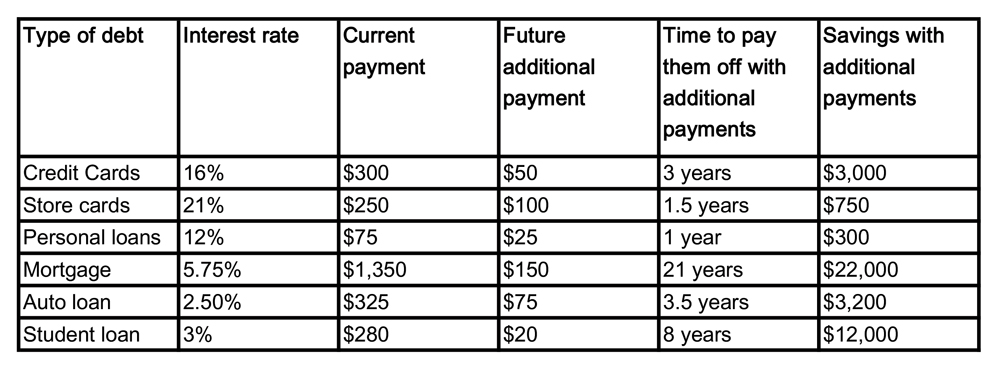Avoiding unnecessary debt should be at the top of your strategies when managing money, taking into account that the meaning of unnecessary will vary from person to person depending on their values and preferences. If buying a new car is more important to you than saving for college, getting a car loan in your mindset will be “good debt” rather than an additional discretionary financial obligation.
Managing money and debt should not be viewed as a moral issue, because people tend to avoid feeling “bad” for the decisions they make and therefore procrastinate instead of taking necessary action.
Make a list of all your debts, including student and personal loans, credit cards, auto loans, mortgages and store cards. Find out the current interest rate you are paying on them, use a payment calculator to figure out how long it will take to pay them and how much will you save if you pay them more aggressively. Pay your higher interest rate debt first and avoid getting further into debt.
Sample debt payoff chart

Resource Links
- Utah State University Extension PowerPay 5.0 - PowerPay will give you the tools to develop a personalized, self-directed debt elimination plan. Discover how quickly you can become debt free, and how much you can save in interest costs by following your debt reduction plan. The following link below can be helpful: https://powerpay.org/
- Personal Monthly Budget
- Every Dollar Count
- America Saves
- GasBuddy
- Compare the Best Savings Accounts
- The Debt Eliminator
- The Simple Dollar
